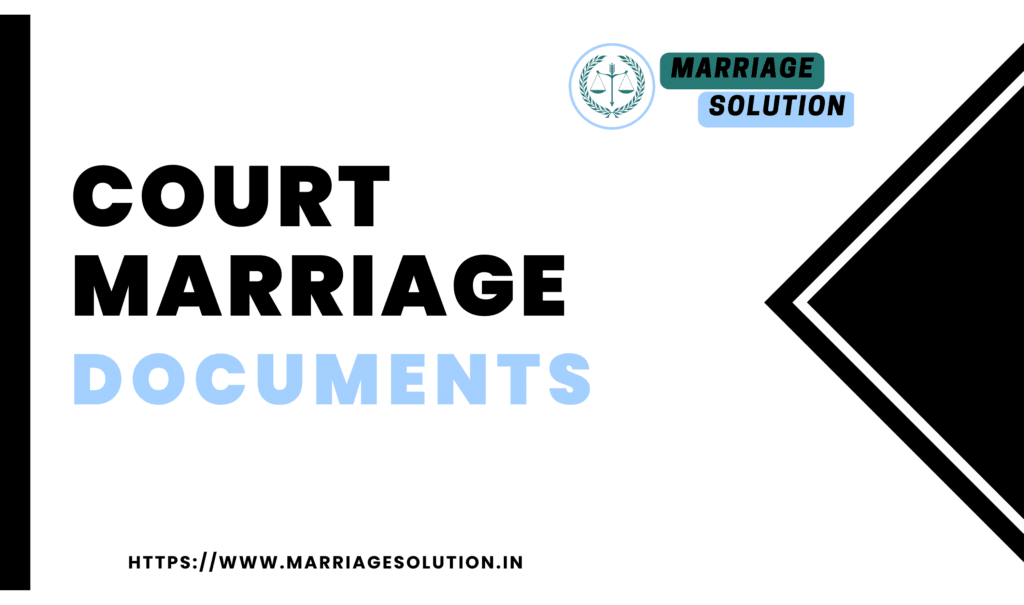Court Marriage Documents
Court Marriage Documents Discover the step-by-step process of court marriage, including eligibility criteria, notice of intended marriage, required documents, the role of witnesses, the marriage ceremony, registration, and obtaining the Marriage Certificate. Gain a comprehensive understanding of the legal procedure to help couples navigate the court marriage process smoothly.

Eligibility for Court Marriage:
- The minimum age for marriage in India is 21 years for the bridegroom and 18 years for the bride.
- Both parties should be mentally sound and capable of giving valid consent.
- Neither party should have a living spouse at the time of marriage
Documents for Couples:
- Application form filled by both parties.
- Identity Proof (Passport, Driving License, etc.).
- Proof of age (birth certificate, school leaving certificate, etc.).
- Address proof (ration card, Aadhaar card, utility bills, etc.).
- Passport-sized photographs.
- Affidavit declaring the parties are not related to each other within the prohibited degree of relationship.
- Signed copy of the marriage notice and it should be attested by the couple.
- Copy of divorce order (if divorced) or the spouse’s death certificate (if widowed).
Documents of Witnesses:
- Identity Proof (Passport, Driving License, etc.).
- Proof of age (birth certificate, school leaving certificate, etc.).
- Address proof (ration card, Aadhaar card, utility bills, etc.).
- Passport-sized photographs.
Procedure for court marriage:
- Notice of Intended Marriage:
- The couple must give a notice of their intention to marry at the office of the Marriage Registrar in the district where at least one of them has resided for at least 30 days prior to the date of the notice.
- The notice should be in writing and should include details such as names, addresses, age, marital status, and nationality of the parties.
- The notice is then displayed on the office notice board for 30 days.
- Objections and Marriage Certificate:
- If there are no objections raised during the 30-day notice period, the Marriage Registrar issues a Marriage Certificate on payment of the prescribed fee.
- The certificate is usually issued within 30 days from the date of notice.
- Witnesses:
- Three witnesses are required to be present at the time of marriage.
- The witnesses must have valid identification and address proofs.
- Marriage Ceremony:
- The court marriage can take place in the office of the Marriage Registrar or any other place approved by the Registrar.
- The marriage ceremony is typically a simple affair where the parties exchange vows in the presence of the Registrar and witnesses.
- Registration:
- After the marriage ceremony, the marriage is registered in the presence of the Registrar and witnesses.
- The Marriage Certificate is signed by the parties, witnesses, and the Registrar.
- Marriage Certificate:
- The Marriage Certificate serves as proof of marriage and is issued by the Marriage Registrar.
- It is an important legal document for various purposes such as applying for passports, visas, or changing marital status in official records.
If you require assistance with court or any other Cases.
court or any other marriage-related issues, our Home – MarriageSolution.in: Your Trusted Partner in Family Legal Matters. Law Services, IPC Section blog, Expert Advice, court cases lawyer help. website may prove helpful. By completing our enquiry form and submitting it online, we can provide customized guidance to navigate through the process effectively. Don’t hesitate to contact us for personalized solutions; we are here to assist you whenever necessary!
